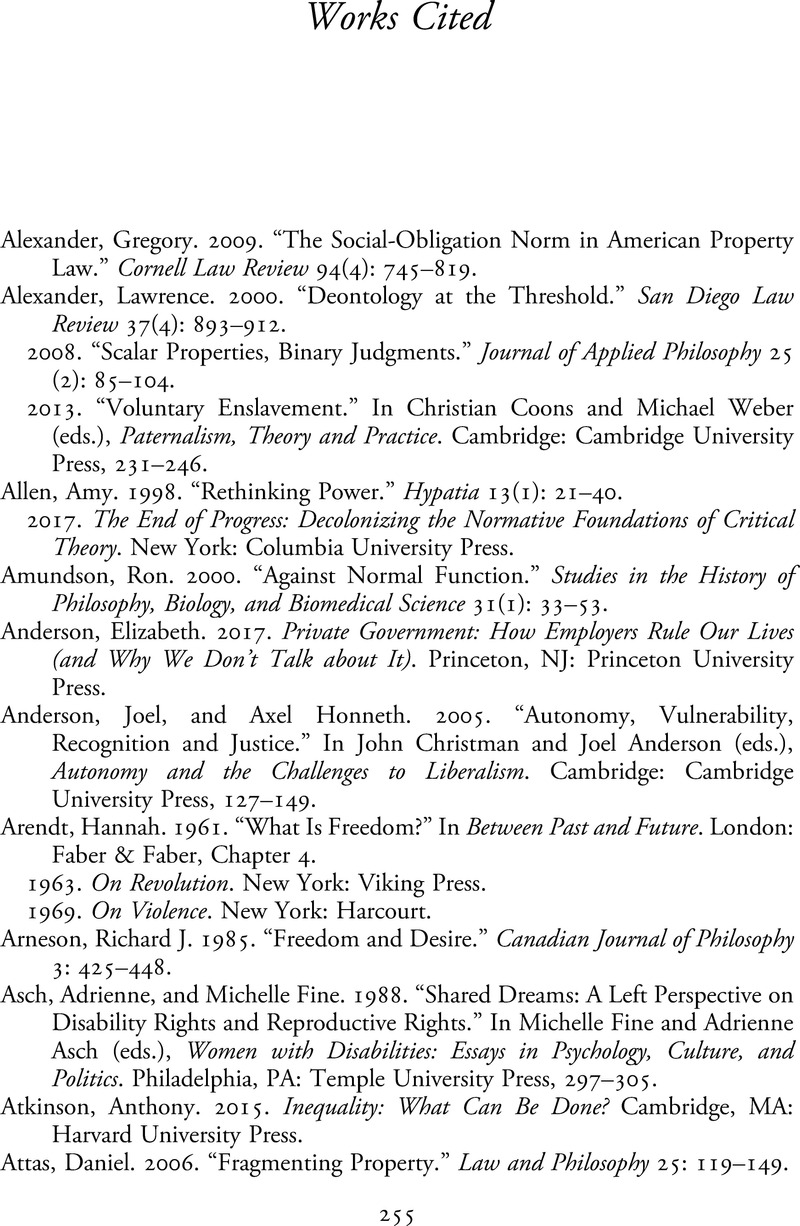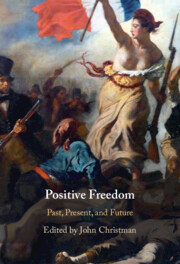Book contents
- Positive Freedom
- Positive Freedom
- Copyright page
- Contents
- Contributors
- Acknowledgments
- Introduction The Multiple Dimensions of Positive Freedom
- Chapter 1 Unity and Disunity in the Positive Tradition
- Chapter 2 Positive Liberty as Realizing the Essence of Man
- Chapter 3 Moral and Personal Positive Freedom
- Chapter 4 Positive Freedom and Freedom of Contract
- Chapter 5 Recognition and Positive Freedom
- Chapter 6 Self-Mastery and the Quality of a Life
- Chapter 7 Basic Freedom in the Real World
- Chapter 8 Reframing Democracy with Positive Freedom
- Chapter 9 Disability and Positive Liberty
- Chapter 10 Positive Freedom and Paternalism
- Chapter 11 Beyond Positive and Negative Liberty
- Chapter 12 Property and Political Power
- Chapter 13 Public Reason, Positive Liberty, and Legitimacy
- Works Cited
- Index
- References
Works Cited
Published online by Cambridge University Press: 03 September 2021
- Positive Freedom
- Positive Freedom
- Copyright page
- Contents
- Contributors
- Acknowledgments
- Introduction The Multiple Dimensions of Positive Freedom
- Chapter 1 Unity and Disunity in the Positive Tradition
- Chapter 2 Positive Liberty as Realizing the Essence of Man
- Chapter 3 Moral and Personal Positive Freedom
- Chapter 4 Positive Freedom and Freedom of Contract
- Chapter 5 Recognition and Positive Freedom
- Chapter 6 Self-Mastery and the Quality of a Life
- Chapter 7 Basic Freedom in the Real World
- Chapter 8 Reframing Democracy with Positive Freedom
- Chapter 9 Disability and Positive Liberty
- Chapter 10 Positive Freedom and Paternalism
- Chapter 11 Beyond Positive and Negative Liberty
- Chapter 12 Property and Political Power
- Chapter 13 Public Reason, Positive Liberty, and Legitimacy
- Works Cited
- Index
- References
Summary

- Type
- Chapter
- Information
- Positive FreedomPast, Present, and Future, pp. 255 - 273Publisher: Cambridge University PressPrint publication year: 2021

